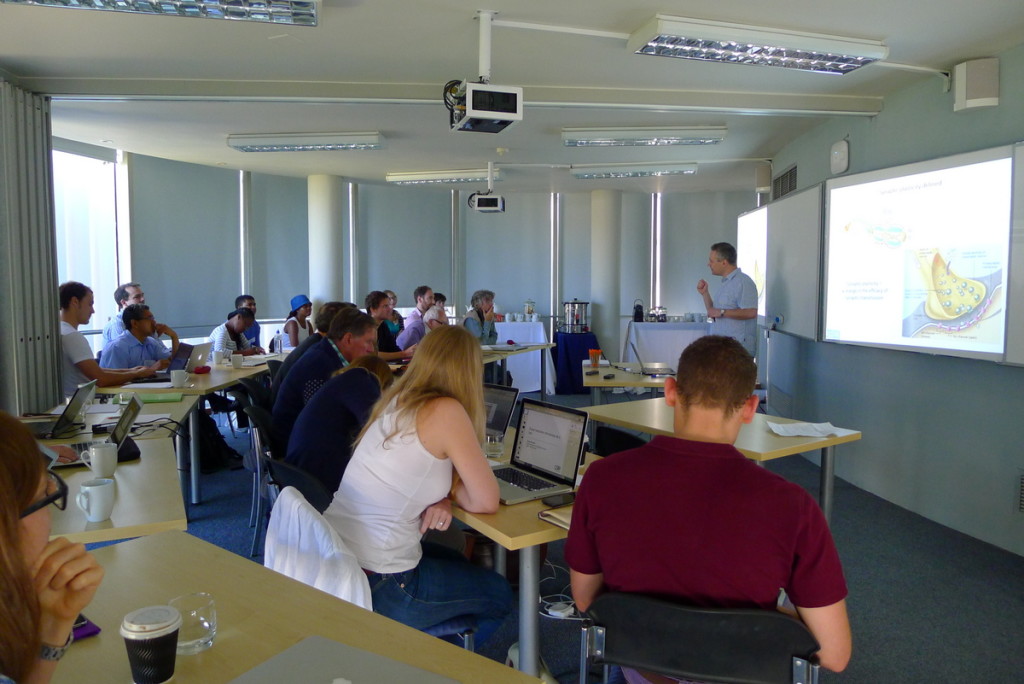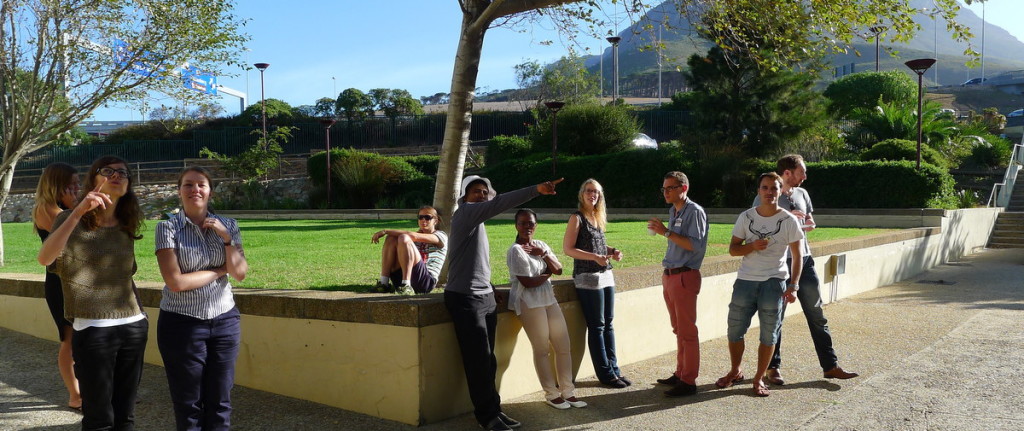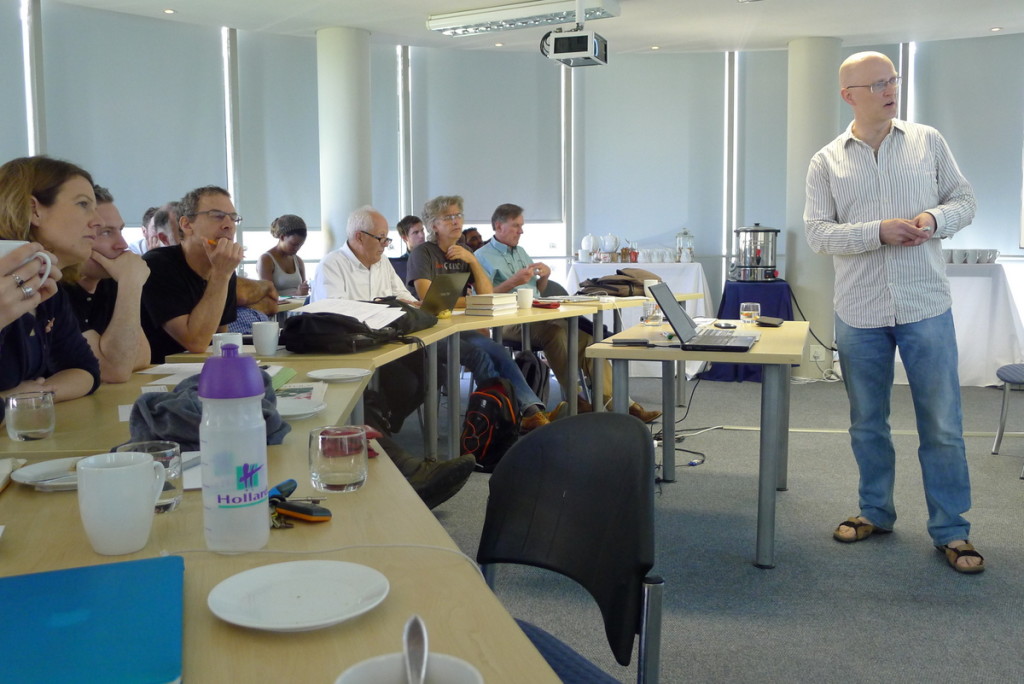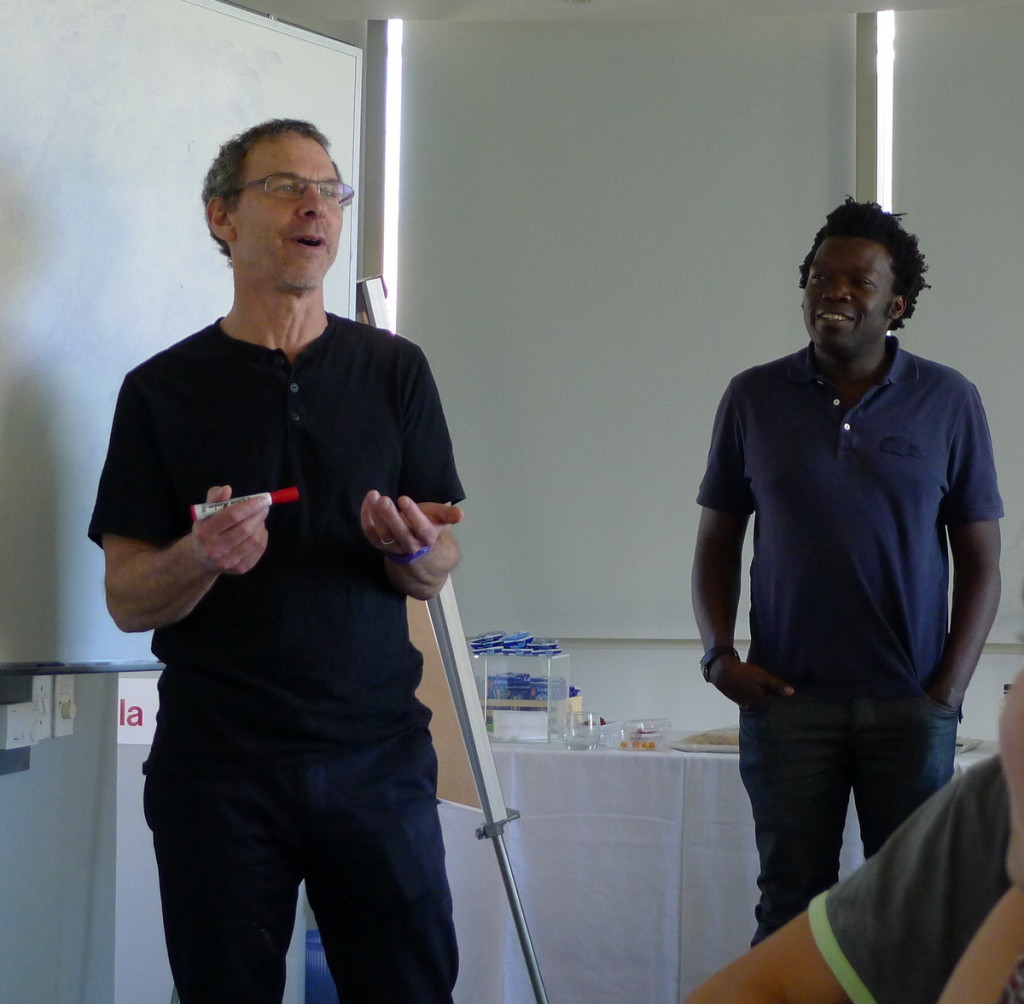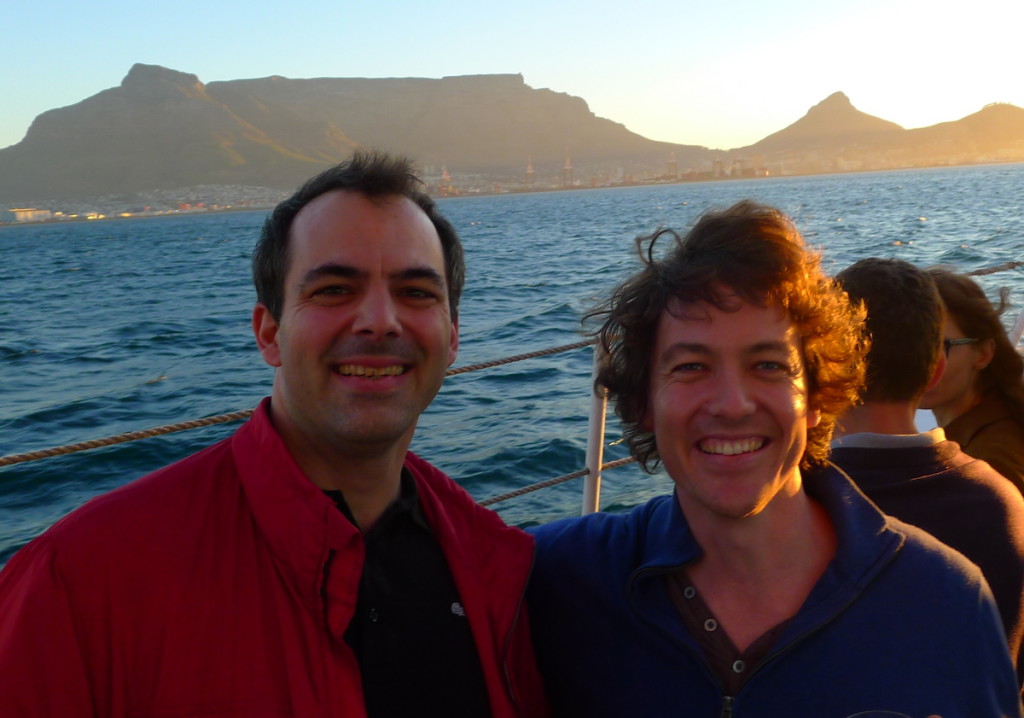In March 2015 together with Tim Vogels from the CNCB at Oxford University we hosted a 3 day multi-disciplinary neuroscience seminar at the University of Cape Town entitled: Neural Network Dynamics in Health and Disease.
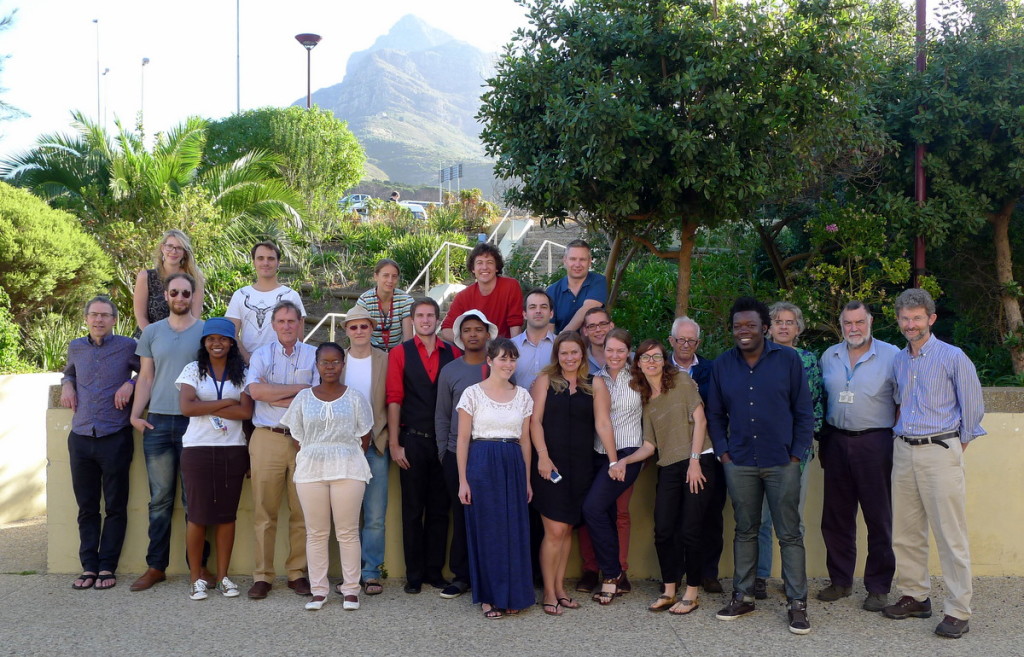
Participants of the UK-SA Royal Society NRF Neuroscience Seminar. From left to right: Peter Latham, Hayley Tomes, Jonathan Shock, Phuti Choshi, Alex Antrobus, Robert Millar, Khanyisile Kgoadi, Andy Trevelyan, Lizelle Niit, Chris Currin, Buchule Mbobo, Joseph Raimondo, Kira Dusterwald, Tim Vogels, Janine Scholefield, Colin Akerman, Richard Burman, Robyn Brackin, Anca Savulescu, George Ellis, Musa Mhlanga, Henri Laurie, Laurie Kellaway, Graham Fieggen
The main objective of the meeting was to bring together a series of neuroscientists from the UK and South Africa that are all interested in understanding neural network dynamics, but approach the problem from different levels of analysis – from a cellular, a synaptic or a computational perspective. We sought to encourage discussions that could span multiple modes of analysis. We aimed to provide a space which would help forge collaborative links between neuroscientists in the United Kingdom and their counterparts in South Africa. Lastly, we aimed to raise the profile of neuroscience in South Africa and the UK by increasing the capacity to perform research of both local and global relevance.
Example feedback from the meeting:
“I thought the meeting was a triumph – the talks were, almost without exception excellent, but the real triumph was the idea to mix up such a range of real expertise. This created a really interesting dynamic in the speaker-audience interaction, with no question being “too stupid”. It forced people to build up their topic up from first principles. This is an excellent approach to doing neuroscientific, or indeed any kind of research, in my view. I was very impressed at the diversity of the audience, and the quality of discussion was really high, and yet always respectful and pursued simply from a desire to clarify matters. Given the complementary set of skills that the different participants brought to the table, I hope and expect that the meeting will kindle various collaborative ventures.” – Dr Andrew Trevelyan
“Thanks for organizing an amazing symposium. I was impressed with the intellectual breadth and depth of the people at uct. It made me really excited about moving there. It was fun to interact with everyone and I enjoyed my conversations with Peter, Tim and others. Very impressive!” – Dr Musa Mhlanga
“The meeting was very useful in terms of brining together a variety of views on the brain and its relation to genetics. The high level talks highlighted important issues in a very useful way.” – Prof George Ellis
The programme:
